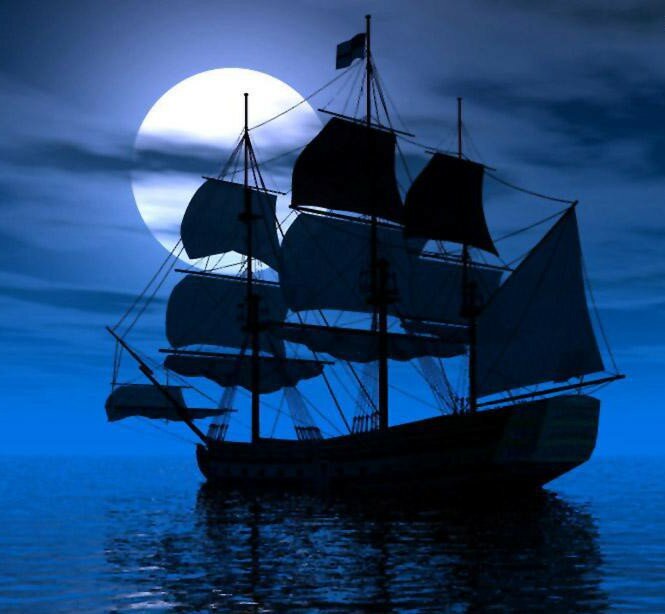
In centuries past and even in present times they sailed and still sail the oceans of the world in various guises: self serving thugs, political underlings, assertive conservationists OR individuals who saw and today still see no reason why they should obey the rules of daily law. Robbing ships at sea has in recent years received much public attention due to piratical activities around the Horn of Africa. Attacking ships forcefully taking over the cargoes, kidnapping people aboard small private yachts and holding them for ransom.

The 15th and 16th centuries were a period of ever increasing exploration of the world. It was also a time when free booters ranged widely to improve their own wealth. It did not take long for politicians to see possibilities for take overs of smaller or more vulnerable countries. But a name change was necessary. Some of the pirates became known as privateers. Plundering valuables meant that this was a way of improving the homelands treasury. The taint of ill gotten gains was not to be a public matter. In time though and when it became generally known of their success and this was acknowledged, they virtually became heroes. As an example consider Francis Drake. The Queen of England Elizabeth 1 made no bones about her pleasure in his working life. She even knighted him for his hard work. It is true that Drake was an explorer, an early circumnavigator of the earth but basically he was a man who was discretely commissioned to seize and plunder ships and property of other nations. England certainly achieved greater power and wealth from the privateers.
The Atlantic Coast around the Cape Peninsula with its small harbours has seen pirate ships lay at anchor. On the 18th August 1725 a ship, the Great Alexander, flying no flag was seen in the Fish Hoek part of False Bay. Some men came ashore seeking fresh food. Others deserted and indicated they were pirates. This created fear, so quickly a man on horseback was sent the 20 miles distant to inform the acting governor at the Castle of the event.  Given the political situation in Europe at that time the representatives of the Dutch East India Company were always on the alert just in case the British, sailing in the Indian Ocean around Mauritius, had sent a ship to sus out the lay of the land. Immediately 50 soldiers were sent to guard the area and to stop the supply of food. The Landdrost at Stellenbosch sent more men to the scene. The captain of the ship offered no opposition, showed papers alleging that they were on their way to the West Indies. The locals remained suspicious. Eventually, during the night, the ship sailed away. In 1806 another pirate ship under the command of Malo le Nouvel sought refuge in Hout Bay during a storm. The ship was captured by the now ruling British. But later released. It is said that by 1811 the ship was once more back in the piracy business.
Given the political situation in Europe at that time the representatives of the Dutch East India Company were always on the alert just in case the British, sailing in the Indian Ocean around Mauritius, had sent a ship to sus out the lay of the land. Immediately 50 soldiers were sent to guard the area and to stop the supply of food. The Landdrost at Stellenbosch sent more men to the scene. The captain of the ship offered no opposition, showed papers alleging that they were on their way to the West Indies. The locals remained suspicious. Eventually, during the night, the ship sailed away. In 1806 another pirate ship under the command of Malo le Nouvel sought refuge in Hout Bay during a storm. The ship was captured by the now ruling British. But later released. It is said that by 1811 the ship was once more back in the piracy business.
The words assertive conservationists used above were not used in a derogatory way. Consider the work of the Sea Shepherd Conservation Society. To some they are perceived as pirates and foes, by others as brave and courageous as they pursue with great attention to detail the wrong done by some countries to marine life and to the oceans of the world. The lives of wild creatures be they land living or in the oceans are very much a part of what we humans call art and culture.
Another kind of piracy is found in relation to the world of music, literature, broadcasting when the hard earned work of the artists are used without permission. Commerce has also entered the world of piracy. The film industry has, in a somewhat romantic and dramatic fashion, earned huge amounts of money by making films based on the lives of pirates.
This but a brief article on a broad subject.
